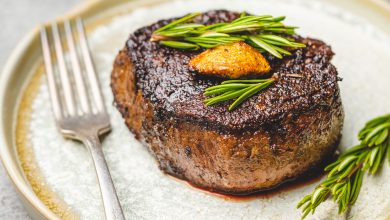
Blood Type Diets: Do They Really Work?
If you are a devout diet enthusiast, you may have heard about the blood type diets. Well, if you have not, it has generated a lot of mixed reactions from nutritionists, health experts, and even diet-conscious individuals. The question, however, is do they actually work, or are they just another diet myth that needs busting?
The internet age makes it easier to circulate unverified claims, hence the need to verify. This article will address your concerns and maybe introduce you to the concept of blood type diets.
Understanding the Blood Type Diets
About 20 years ago, Peter D’Adamo, a naturopathic medical expert, shared new perspectives on his book about dietary nutrition. He proposed that people can attain good health, increase life expectancy, and reduce body size by following specific diet plans unique to their blood types. The claim is that our diet decisions, from food choice, to little things as spices and even workout plans, should be chosen by our blood type. In no time, D’Adamo’s book generated massive sales as a best seller. People began reviewing their meal choices, checking their blood types, and changing their exercises. D’Adamo’s insights on blood type diets created a shift in health consciousness.

Recommendations from the Blood Type Diets Theory
- For individuals with type O blood: The focus should be on high-protein meals and consuming sufficient amounts of meat, fish, vegetables, and fruits, but fewer grains, beans, and other legumes. For weight loss tips, type O individuals should eat more of kelp, seafood, broccoli, red meat, olive oil. Dairy products, wheat, and corn should be minimal.
- For individuals with type A blood: The selection should range from vegetables and fruits, seafood, and whole grains with no meat. To lose weight, it also recommends vegetables, pineapples, and soy. However, it disapproves of kidney beans.
- For individuals with type B blood: This diet plan recommends an intake of an abundant supply of meat, dairy products, fruit, grains, and seafood for people under this category. It also encourages eating eggs, green vegetables, liver, and licorice tea to lose weight. High-calorie foods like chicken, wheat, peanuts, and corn should be avoided.
- For individuals with type AB blood: The food choice for type AB should include lamb, tofu, fish, dairy products, and vegetables. Weight reduction should consist of the above, but avoid chicken and kidney beans
Do Blood Type Diets Really Work?
Research on blood type diets is quite minimal in the medical literature. In fact, D’Adamo’s name displays no results in a blood-type-diet-related search.
Research done in 2013 and 2014 on blood type diets is noteworthy. The 2013 research findings assessed the world’s medical literature but discovered no studies endorsing the health advantages of blood type diets. The 2014 review demonstrated that, while individuals following the blood type diets recorded some improvement in specific cardiovascular risk factors (such as cholesterol or blood pressure), the improvements were unconnected to the blood type nutrition.
Does It Hold Water?
The assumptions behind this approach to nutrition is that blood types are tightly linked with our digestion. This suggests that certain diets will aid digestion, improve body weight goals, boost energy levels, and minimize diseases and infections, including chronic conditions like cancer and cardiovascular diseases.
The type O blood was presumed to have more evolutionary advantage with theories that it’s the “ancestral” blood type of the early men. Most of these early humans were hunters and gatherers who majorly subsisted on animal protein and fruits.
Moreover, according to this narrative, the type A blood evolved when early men leaned on farming and consumed more vegetarian diets. However, the type of blood emerged among cattle rearers and nomadic settlers who relied on sufficient dairy products to survive.
As for the type AB blood, they are theorized to have developed from cross-breeding between types A and B blood.
These theoretical suggestions have been questioned by many researchers. First, type A and not type O is the first blood type. There is evolutionary evidence to support the claim. Also, there is no justifiable link that bridges the concept of blood type and food digestion. Hence, the absence of evidence discredits the assumptions of blood type diets.

What are the Disadvantages?
To be fair, remember a few individuals recorded improvements when they followed one of the blood type diets, although links have not been established on the role of blood types in these improvements. On the other side, if we revisit the principles of the blood type diet, it means one must know their blood type before adopting a blood type diet plan.
Again, personal diet choices would be a huge obstacle. For instance, type O vegetarians would find it difficult following the prescribed diet plan, which is heavy on meat protein. This would also affect lovers of red meat who will be heartbroken to find out they are type A.
Importantly, patients with chronic health conditions are not advised to follow these blood type diets. It is safer to get proven diet recommendations from seasoned nutritionists.
Enthusiasts of the blood-focused diets may be of the opinion that the absence of evidence doesn’t discredit the system. Again, there is no clear proof to rule out the safety of the foods. These concerns may just fuel the interest in blood type diets in time.
Yet we have come across several books and publications claiming different results in diet and health. The best and current solution, however, is to stick with evidence-based sources.



